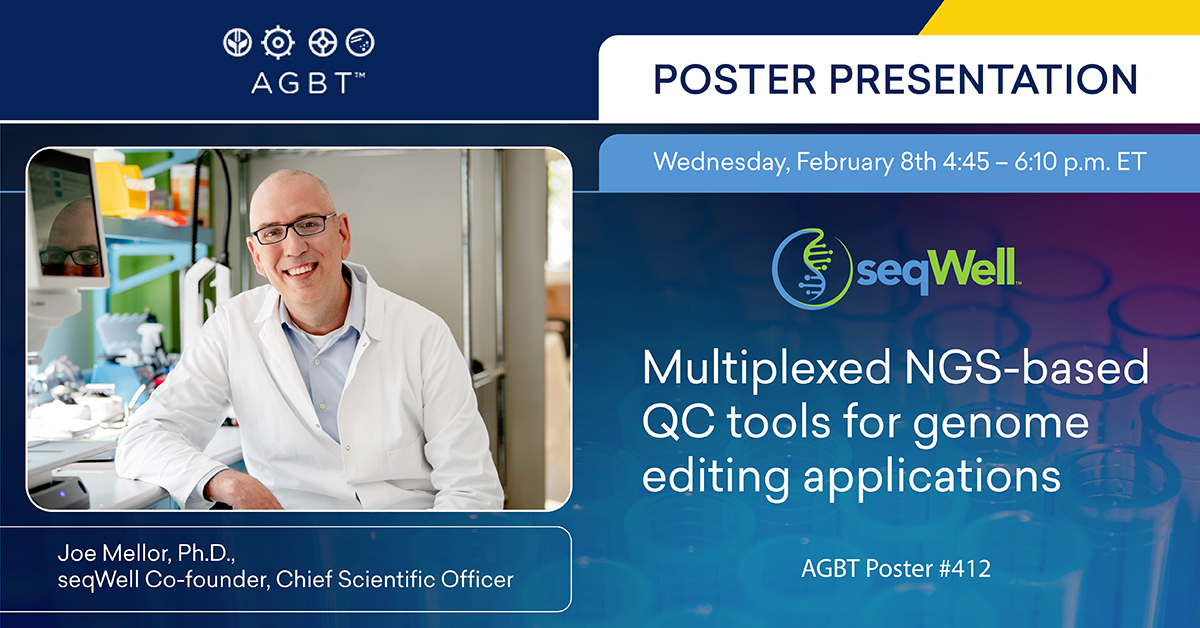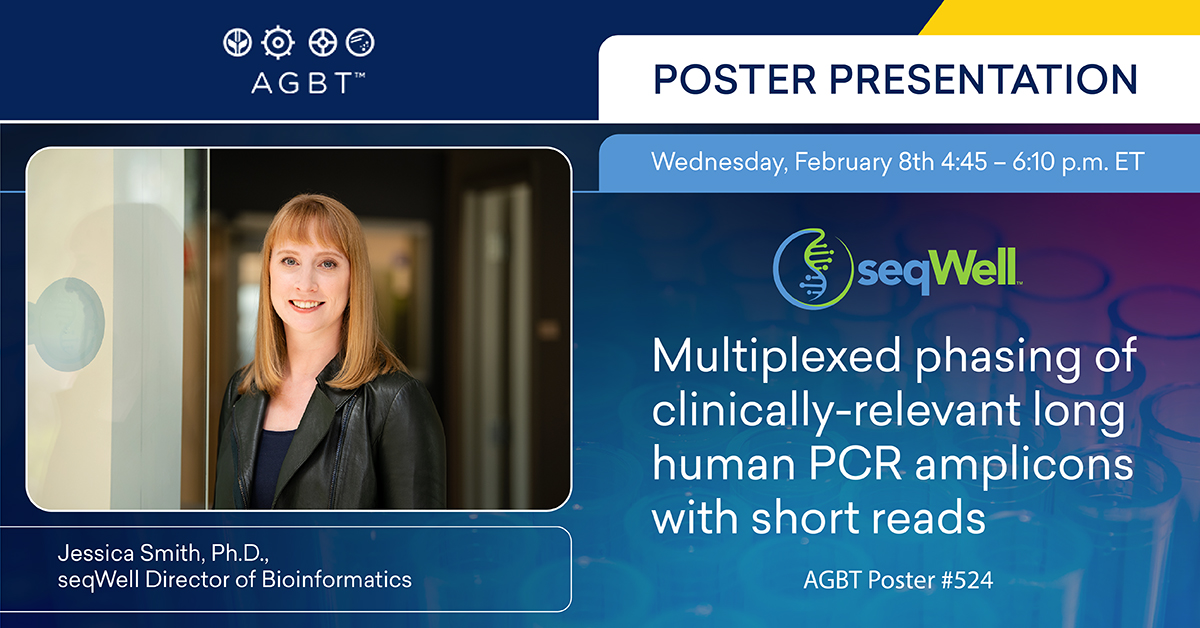AGBT 2023 | Featured Product
ExpressPlex™ Library Prep Kit
Your fast lane to throughput, efficiency, and speed
Go from extracted sample to libraries on sequencer in less than half a day.
We’re hearing positive feedback from our Users – “5 Stars!”
Early access users of ExpressPlex™ agree that the library prep is so easy and quick. With the significantly shortened hands-on time, some enthusiastically reported they were able to perform prep the same day as receiving the kit!
- Spend your time on data and results, not pipetting
- Train any lab tech, minimize chance for error
- Multiplex 100’s of samples
- Easily automate your protocol
- Focus on what’s important and leave the rest to ExpressPlex
A transformational one-step library preparation method for multiplexed plasmid and amplicon sequencing
Conventional library preparation methods demand multiple incubations interrupted by cumbersome pipetting steps. A transformational new library prep technology from seqWell enables barcoding and amplification of 8-384 dual-indexed libraries in 90 minutes in 16 µl “one-pot” reactions, while simultaneously auto-normalizing library read-count and insert size.
The simplicity of the ExpressPlex workflow makes it uniquely well-suited for manual, automated and ultra high throughput (UHT) library prep from plasmids and PCR products.
To request early access to the ExpressPlex Library Prep Kit for your research, complete the form below.

APPLICATION NOTE
The purePlex™ DNA Library Prep Kit supports truly multiplexed and highly scalable construction of library pools for low-pass WGS. Together with the Element AVITI™ system, the NGS technology offers an accessible and robust alternative to microarrays for genotyping.
This application note demonstrates that the purePlex DNA Library Prep Kit paired with the AVITI System improves the performance of mid-throughput, low-pass WGS at a competitive price point.
Poster Presentations | AGBT 2023

Multiplexed NGS-based QC Tools for Genome Editing Applications
Genome editing with technologies such as CRISPR/Cas9 can be accompanied by off-target mutagenesis that are critical to measure and characterize. In general, it is effort-intensive, slow, and bias-prone to generate libraries of genomic DNA by fragmentation, size selection, end-repair and ligation prior to PCR. Library amplification is often followed by inefficient hybridization-based enrichment of sequences of interest to reduce sequencing cost.
In this poster, we describe the use of Tagify™ UMI Tn5 transposase-based reagents to circumvent these limitations.

Multiplexed phasing of clinically relevant long human PCR amplicons with short reads
While short-read sequencing technology can call variants with high fidelity, phasing variants over gene-length regions remains a challenge. Long-read sequencing methods are better suited for this application, but have inadequate accuracy and are difficult to scale to many samples.
We have developed a novel library preparation technology that links short reads across long DNA fragments and multiplexes many samples for fast and affordable parallel phasing of dozens of gene-length amplicons.
